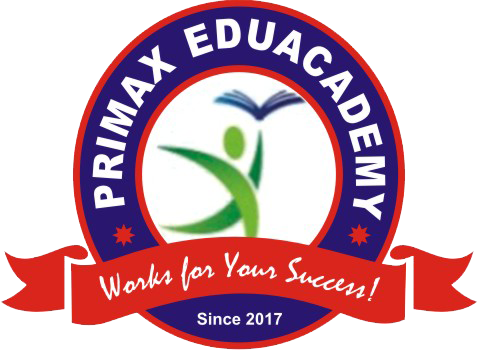
-
Skill Development and Entrepreneurship development efforts across the country have been highly fragmented so far. Though India enjoys the demographic advantage of having the youngest workforce with an average age of 29 years in comparison with the advanced economies, as opposed to the developed countries, where the percentage of skilled workforce is between 60% and 90% of the total workforce, India records a low 5% of workforce (20-24 years) with formal employability skills. With the present education and skill levels of those already in the labour force being very low, it would be a major challenge for India to reap its demographic advantage.
-
PRIMAX EDUACADEMY
(Under Primax Educational Trust)
Kengeri, Bengaluru, Karnataka, India.(Registered under Ministry of Micro,Small & Medium Enterprises)
Services
SKILL DEVELOPMENT
Primax Eduacademy

-
What is skill Development?
Skill development is a process of identifying your skill gap and ensuring you to develop these skills. Your skills determine your ability to execute plans and achieve your goals. Skill development and training is an integral part of an employee’s / students life. Organizations / Institution that encourage skill development have a stronger workforce, employees are motivated and engaged, and have higher productivity.
Advance Excel
Microsoft Excel is a very versatile tool and can be used for almost for anything that you can imagine: Agendas, Budgets, Calendars, Cards, Charts and Diagrams, Financial Tools (Loan calculators etc.), Flyers, Forms, Inventories, Invoices, Lists and to-do checklists, Planners, Plans and proposals, Reports, Schedules, Timesheets, etc,. Many business functions now reliant on IT and the internet, Excel continues to be seen as a vital tool for administration and the effective running of a business. Efficient model and analyze almost any data, do things easier and faster. Create data charts in a single cell.
Tally With GST
Goods and Services Tax was implemented in India on 1st July 2017. Many indirect taxes such as Excise, VAT, CST, Service Tax etc merged into GST. Now it is important to learn GST for everyone. whether you are
• Student
• Professional
• Businessman
• Chartered Accountant
Tally ERP 9 Software provides you with powerful error prevention, detection and correction capabilities, making your GSTR-1 and GSTR-3B filing seamless.
Tally is the best option to implement GST in your business. In this course we have explained each topic in detail that how to implement GST in Tally and Generate all returns automatically such as GSTR-1, GSTR-2, GSTR-3B and other reconciliation as well.
We also explain basic concept of GST so that you will be familiar with GST before implement. Now it is important because GST is online. We have to file all return online and match the Sales and purchase online with our suppliers and customers data.
You will learn all in details with live examples.
This course is designed in simple English language, to give a clear and in-depth understanding of TallyERP9 with practical examples. We have taken instances of different industries such as trading, manufacturing, service, project based etc.
This program intends to make the participants experts in TallyERP9 in every aspect, so as to help in building his/her career.
Benefits
• Self-paced learning
• Learn the best practices from industry expert
• Practical industry-based examples
• Assignment for practice
Who Can Join
• Fresh Students - Make Career in Accounts & Finance
• Working Professional - Enhance their Knowledge
• Businessman - Handle Accounts himself
• Chartered Accountants - Handling Accounts for Audit Purpose & Prepare Final Accounts
• Store Keeper - Person Handling Godown & Store
• HR Person - Handle Complete Payroll Process.
Syllabus – Click and download
Digital Marketing
One of the newer and more unique computer courses is Digital Marketing which covers a vast area related to the field of digital technology. Some of the key aspects covered by this course include: Search Engine Optimisation (SEO), Search Engine Marketing (SEM), Social Media Marketing (SMM), Content Writing, Affiliate Marketing, Email Marketing, Lead Generation, Brand Management, Web Analytics and Mobile Marketing. This course can be especially useful for those looking to launch their own brand, run an independent business or start an online business field. Potential career options post the completion of this course includes; • Digital Marketer (independent) • Digital Marketing professional (work for agencies) • Online Brand Management professional • Social Media Manager • SEO professional (independent/ fulltime) • SEO consultant (independent/fulltime) • Digital Marketing instructor
Communication Training Program
This highly interactive, program is designed to enhance your communication skills as a young Students. You will learn effective tools and techniques for effectively interpreting communicative behavior. This Programme is designed to improve communication at all levels within an organization. Learn how to apply communication styles learned through the Extended profile to build effective working relationships with both internal team members and external customers. Communication starts with active listening, where you seek to understand before you are understood. Communication happens at many levels within the organization, both formally and informally. It is essential to communicate effectively in both settings.
Learning Objectives:
In this Programme, participants will explore the key competencies of communication including:
• Personal awareness, constructive feedback, self-control and acceptance of others’ styles
• Active listening and responding
• Demonstrating empathy when executing decisions and communicating with staff
• Accepting others and their opinions based on their style
• Building a mutual desire for trust and respect
• Looking ahead and focusing on growth and opportunities based on style
• Review and discuss the importance of effective communication.
• Evaluate your own listening skills.
• Identify and discuss the 10 keys to effective listening.
• Using a case study, discuss constructive and destructive outcomes for managing interpersonal communication.
• Learn how to restate negative sounding statements into positive ones to avoid escalation.
• Interpret verbal and nonverbal communication in others.
• Giving Practice and receiving constructive feedback
feel free to contact us!
